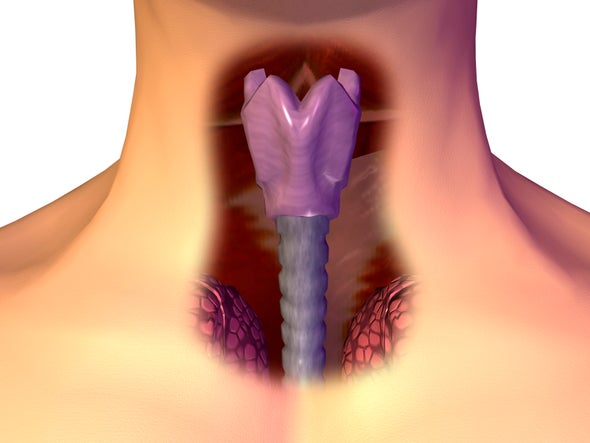Hoarseness: Causes, Treatments, and Prevention
There are a lot of reasons why your voice might suddenly sound breathy, raspy, or strained. But there are also things you can do to reverse it or even prevent it in the first place.
The following written content via Health
You know what your voice normally sounds like. So when you’re suddenly struggling with hoarseness, it can be a little jarring. After all, that raspy, strained voice that’s coming out doesn’t quite sound like you.

While odds are high that you’ve had hoarseness at some point in your life, it can be confusing when it comes out of nowhere, sending you down a rabbit hole of online searches. Before you panic, know this: Hoarseness is usually due to something minor and goes away in a day or two. But hoarseness that sticks around can be a sign of an underlying issue that needs to be addressed.
How can you know if your hoarseness is serious or nothing to stress about? Experts break it all down.
What is hoarseness?
To fully get what hoarseness is, it’s important to understand how your voice works. The sound of your voice is made by vibrations of your vocal folds, two bands of smooth muscle tissue that are opposite each other in your larynx (aka, your voice box), according the National Institute on Deafness and Other Communication Disorders (NIDCD).
When you’re not speaking, your vocal folds stay open so you can breathe. But when you speak, the vocal folds come together while air from your lungs blows past. This makes them vibrate and create sound waves that go through your throat, nose, and mouth. All the factors that make up the sound of your voice, including the pitch, volume, and tone, are determined by the size and shape of your vocal folds and how sound resonates in your throat, nose, and mouth.
When your voice is hoarse, something in the mechanism that makes the sound of your voice goes wrong—and it’s usually a problem in your vocal folds, the NIDCD says. This leads to a breathy, raspy, or strained sound that can be softer in volume or lower in pitch.
How about the way hoarseness feels? “Sometimes it’s just a sound,” Phillip C. Song, MD, director of the Division of Laryngology at Mass Eye and Ear, tells Health. “But people will often feel a strain in their voice. They have to recruit accessory muscles to make a sound and can feel a tightening in their voice.”
What causes hoarseness?
There are a lot of potential reasons why you might have hoarseness, but these are the more common causes:
Laryngitis
Laryngitis is the swelling and irritation of your voice box, and it often causes hoarseness or the loss of your voice, according to MedlinePlus. “Laryngitis is a very non-specific term that suggests there’s some sort of inflammation in the larynx,” Dr. Song says. “But it’s a very common cause of hoarseness.”
The most common form of laryngitis is an infection caused by a virus, like those that lead to a cold, the flu, or COVID-19. Laryngitis can also be caused by allergies, bacterial infection, bronchitis, injury, or irritants and chemicals. All of these can cause inflammation and irritation that can lead to hoarseness, Dr. Song says.
Other common causes of laryngitis and, in turn, hoarseness are:
Acid reflux

Gastroesophageal reflux disease (GERD) is a chronic condition that happens when the contents of your stomach come back up into your esophagus, the tube that connects your throat to your stomach, per the National Institute of Diabetes and Digestive and Kidney Diseases. Then there’s laryngopharyngeal reflux, when the stomach acid rises all the way up to the throat and larynx.
“When this happens, your throat and vocal cords are exposed to that acid, and they can become swollen and inflamed,” Omid Mehdizadeh, MD, otolaryngologist and laryngologist at Providence Saint John’s Health Center in Santa Monica, California, tells Health.
Overusing your voice
There are plenty of ways you can overuse your voice—including speaking or singing loudly and talking for too long—and that can lead to hoarseness. “If you’re overusing your vocal cords, it can cause inflammation and what’s known as phonotrauma,” Dr. Song says. “We can see short-term and long-term trauma.”
He notes that a lot of fitness instructors tend to deal with this because they’re constantly yelling to try to motivate people. Read more from Health.





